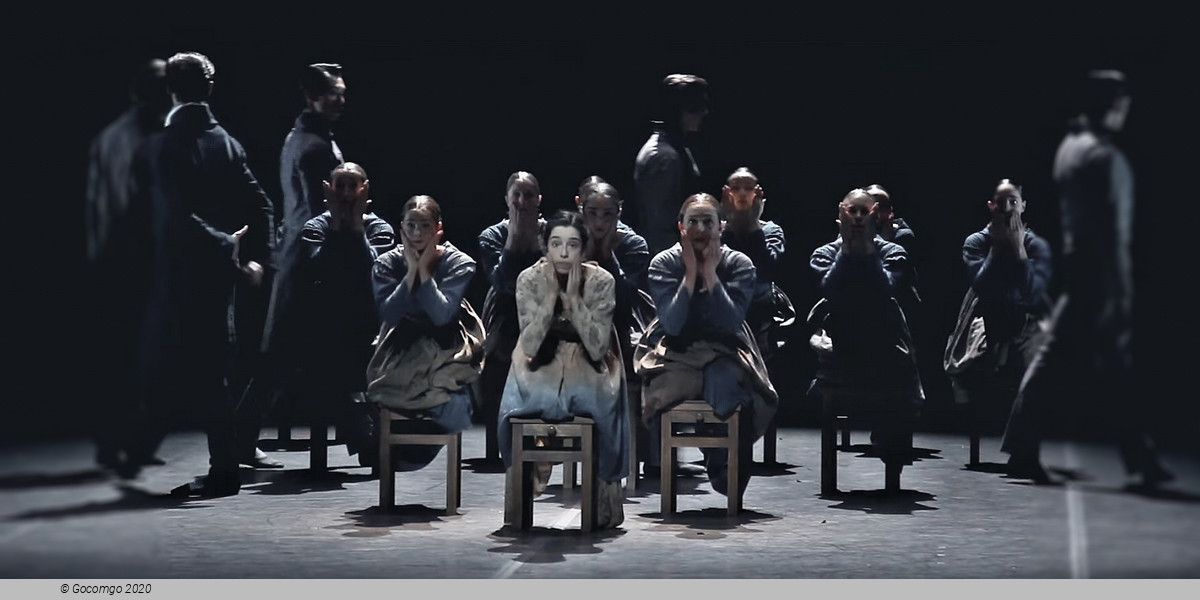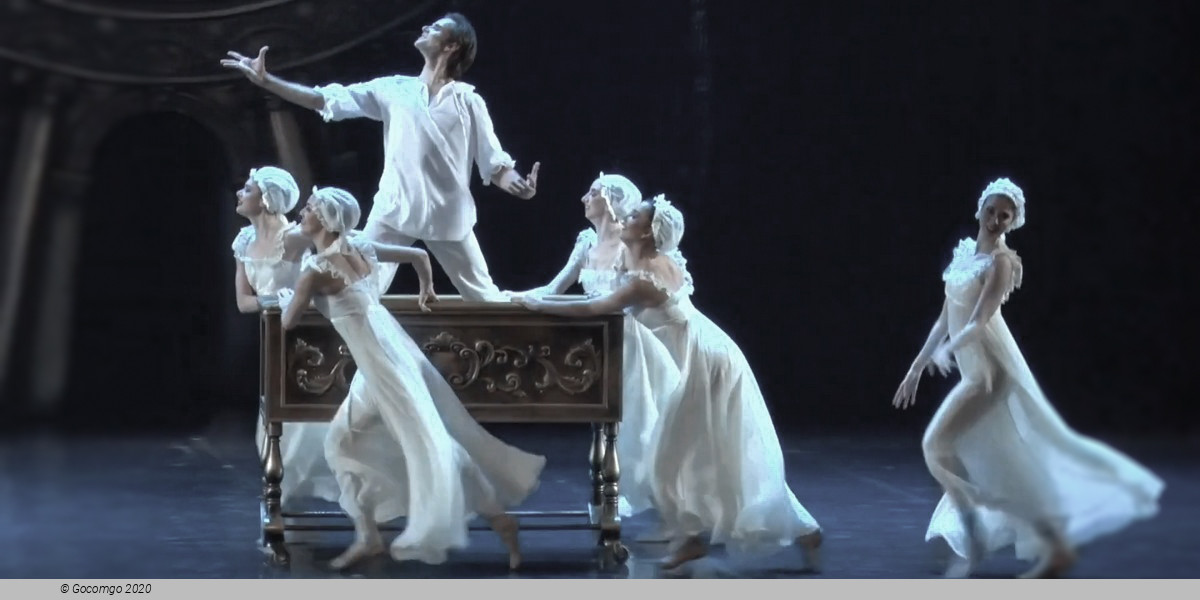Events102 results
About
Gustav Mahler (7 July 1860 - Vienna, 18 May 1911) was an Austrian composer and conductor.
Gustav Mahler was born in 1860 in Kalischt, in Bohemia, then part of the Austrian Empire, by Bernhard and Marie Hermann. His family was of Jewish-Ashkenazi origin and German speaking. A few months after birth, he moved to Iglau. His childhood was very sad, marred by the death of several brothers. Helped by his father, who strummed the violin in his youth, and by the pianist Julius Epstein, in 1875 he managed to enter the Vienna Conservatory, which he attended for three years, obtaining consensus and arousing jealousy, probably because of his bad temper. In this climate he made a good friendship with Hugo Wolf, Hans Rott, the brothers Rosé, and Rudolf and Heinrich Krzyzanowski. The intellectual and artistic association with the composer Anton Bruckner proved to be useful also in the field of work.
The first known composition of Gustav Mahler, dating back to 1876, is a Klavierquartett in a minor, born as an essay for the conservatory, of which the first half and 27 bars of the second are possessed. Apart from the destroyed or incomplete compositions of the youthful period, we received Lieder for tenor and piano on texts composed by Mahler himself, dedicated to the young Josephine Poisl. Of 1880 it is Das klagende Lied (Song of lament), still on its own text. He then composed the five Lieder und Gesänge aus der Jugendzeit (Songs of youth, 1880-1883 and 1887-1890) and the Lieder eines fahrenden Gesellen (Songs of one on the way or Canti di viandante, 1884).
After completing his studies at the conservatory, Mahler had his first experiences in conducting at Bad Hall in the summer of 1880 where the repertoire was the operetta. In the following years he continued his career as a director at other major opera houses in central Europe: Ljubljana in 1881 where he also directed Il trovatore, Olomouc in 1883 where he also directed Carmen, Vienna and Kassel in August 1883 where he directed Der Freischütz, Prague in 1885, Leipzig Opera from 1886 and Budapest in 1888. In 1887 Mahler was called to replace the famous director Arthur Nikisch for the cycle Ring of the Nibelung by Richard Wagner in Leipzig; the great success achieved contributed to increasing his fame and his prestige as director both among music critics and the public.
His compositions did not attain similar success: the completion of the theatrical work Die Drei Pintos by Carl Maria von Weber, which in January 1888 received fluctuating criticisms and failed to enter permanently into the operatic repertoire, and the Symphony n . 1 in D major The Titan, inspired by the eponymous novel by Jean Paul, which was repeatedly revised by the author also due to the cold reception received. Also in 1888 he returned to Prague to direct Die Cornrei Pintos and Der Barbier von Bagdad by Peter Cornelius and thanks to his friend Guido Adler from October he worked at the Opera House in Budapest which at that time was involved in cultural magiarization directing Das Rheingold and Die Walküre in Hungarian in January 1889. The following summer, after a brief visit to Iglau, he went to Munich where he underwent surgery for the worsening of the hemorrhoids from which he suffered.
After successfully directing Don Giovanni in Budapest since May 1891 he worked at the Hamburg Opera where in the first season he directed for the first time Tristan und Isolde, then Tannhäuser and Sigfrido and in 1892 the German premiere of Yevgeny Onegin in the presence of Tchaikovsky and 21 October Djamileh.
From 1893 to 1896 Mahler spent his summer vacation periods in Steinbach am Attersee in Upper Austria, where he continued the revision of Symphony No. 1 (the first performance was on November 21, 1889 in Budapest and the second on October 27, 1893 in Hamburg), he composed the second symphony which debuted successfully in Berlin on December 13, 1895, sketched the third symphony, and wrote most of the Lieder of the cycle Des Knaben Wunderhorn (in Italian The magic horn of the child), based on a famous cycle of poems edited by Achim von Arnim and Clemens Brentano.
Still in Hamburg in 1894 he introduced Falstaff and Hänsel and Gretel and directed the Symphony n. 9 by Beethoven.
In 1897 Mahler, who was then thirty-seven, received the post of director of K. u K. Hofoper (Imperial Royal Opera House today Wiener Staatsoper), that is to say the most prestigious musical position of the Austrian Empire; since it was an "imperial office" according to the Austro-Hungarian law in force the person in charge could not be of Jewish religion. Mahler, who had never been a devout and practicing Jew, converted, for pragmatic reasons, to Catholicism, a religion that in any case was not foreign to him: in fact as a boy he had been a chorister in a Catholic church, where the choir master he had also taught himself to play the piano. Nevertheless, Mahler's was not a sincere conversion and had reluctantly consented to baptism, after which he never went to church, except for his marriage, nor did he ever confess, and was often described as an agnostic, but his musical production shows elements close to a naturalistic pantheism with Nietzschean ancestry, represented, for example, by the 1st movement of the Symphony n. 3 (a sort of march for the awakening of the god Pan or of Nature) and in the use, in the fourth movement, of a text taken from the Zarathustra; or again in one of his last masterpieces, Das Lied von der Erde; also the use of the Catholic hymn Veni creator spiritus in the first part of his eighth symphony, together with the Faustian scenes of the second part, are declined more in a pantheistic than a confessional sense. In any case, the Jewish spirit and style remain widely present in all his music, for example the use of Klezmer style themes in the third movement of the first symphony.
In the ten years of leadership at the Vienna Opera, Mahler profoundly renewed the repertoire of that musical institution and improved its artistic quality, managing to bend both performers and listeners to his vision of music and art. When he received the assignment, the most popular works were the Lohengrin, the Manon of Massenet and Cavalleria rusticana; the new director decided a new course more focused on the repertoire of the classical period, starting with the works of Christoph Willibald Gluck and Wolfgang Amadeus Mozart, also making use of the collaboration of the painter Alfred Roller for the staging of original Fidelio productions , of Tristan und Isolde, and of the cycle The ring of the Nibelung. In Vienna in 1897 he directed L'Africaine, The Bride Sold, Le Prophète, Die Walküre, Siegfried, The Twilight of the Gods, Dalibor, Yevgeny Onegin and Der Fliegende Holländer, in 1898 Djamileh, Aida and Donna Diana by Emil von Reznicek, in 1899 The speziale, Die Opernprobe by Albert Lortzing, Der Bärenhäuter by Siegfried Wagner, Mignon and Il demone, in 1900 the premiere of Es war einmal by Alexander von Zemlinsky, Iolanta and Così fan tutte, in 1901 Rienzi and Le merry comedians of Windsor, in 1902 Feuersnot by Richard Strauss, Der dot mon by Josef Forster, The Huguenots and The Queen of Spades, in 1903 Euryanthe and Louise, in 1904 Der Corregidor by Hugo Wolf and Fidelio, in 1905 Das war ich by Leo Blech, Die Abreise by Eugen d'Albert and Curious Women, in 1906 Die Entführung aus dem Serail and Der Widerspenstigen Zähmung by Hermann Goetz, in 1907 Iphigenia in Aulis and in 1908 Tiefland by d'Albert conducting in 346 Viennese performances.
In April 1899 he conducted his Symphony No. 2 in Vienna.
In 1899 and 1910 he directed his revised versions of the second and fourth symphonies of Robert Schumann.
At the beginning of the twentieth century, Vienna was one of the largest and most important cities in the world, the capital of a large multinational empire in central Europe and a very lively center in terms of art and culture; Mahler knew many of the intellectuals and artists who lived in Vienna at that time, among others the painters Gustav Klimt and Egon Schiele.
Mahler worked for nine months a year at the State Opera, so he only had the summer to devote himself to composition; he used to spend summers at Maiernigg on Lake Wörthersee and in this idyllic place he composed four symphonies (fifth to eighth), Rückert Lieder, Kindertotenlieder (Songs for dead children), both based on poems by Friedrich Rückert, and Der Tamboursg'sell, the last of his lieder for Des Knaben Wunderhorn.
In June 1901 Mahler moved to a new villa on the lake always in Maiernigg in Carinthia. On March 9, 1902 Mahler married Alma Schindler, twenty years younger and stepdaughter of the famous Viennese painter Carl Moll. Alma was a musician and composer, but her husband forbade her to continue to experiment with the composition. Mahler also interacted creatively with other women, including the two-year-old violist Natalie Bauer-Lechner, whom she had met during her studies in Vienna. Alma and Gustav had two daughters: Maria Anna (known as Putzi, 1902-1907), who died at four years of diphtheria during the summer holidays at Maiernigg, and Anna (known as Gucki; 1904-1988), who, although ill of the same he managed to heal himself and became a sculptress as an adult.
In 1908 and for three years Mahler changed the place of summer vacations and compositional activity, and chose a farm near Dobbiaco, in Alta Val Pusteria, in the historic region of Tyrol. There he substantially composed his ninth symphony, Das Lied von der Erde and the unfinished Symphony n. 10.
At the Metropolitan Opera House in New York he made his debut on 1 January 1908, conducting Tristan und Isolde with Louise Homer then Don Giovanni with Antonio Scotti and Alessandro Bonci, Fyodor Chaliapin and Marcella Sembrich, Die Walküre, Siegfried and Fidelio, in 1909 The Marriage of Figaro with Geraldine Farrar and The sold bride and, finally, in 1910 The queen of spades with Alma Gluck directing in fifty-four performances.
From 1909 to 1911 he was the musical director of the New York Philharmonic.
Seriously heartily ill since about 1907, Mahler was repeatedly forced to undergo delicate medical therapies, and turned in vain to famous specialists who, however, could not help but note the seriousness of his illness, a malignant and incurable endocarditis .
Returning on purpose to Vienna from America (where he resided for about a year and where he obtained outstanding concert successes), Mahler died in the Löw sanatorium in Vienna in 1911. Contributions to his biography are given by his wife Alma and by his friend Natalie Bauer-Lechner.
The biographer and musicologist Henry-Louis de La Grange has devoted much of his life to collecting material on him and bringing the story of his life back to books.





